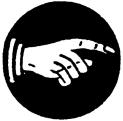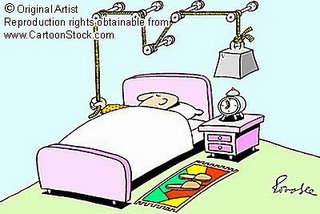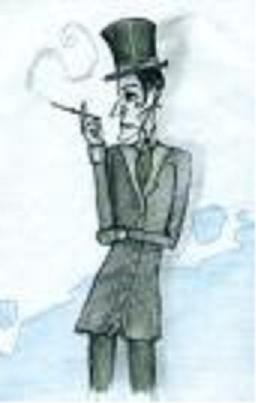I was recently pointed in the direction of
another disenchanted doctor’s blog – there does seem to be an awful lot of them, doesn’t there? – that provided some very interesting reading. It seems while I’m jabbering on about away-gays and not calling my friends, other people are pondering far deeper issues surrounding the ethics of the death penalty and euthanasia. There were two main points that interested me. Firstly, is it wrong for doctors to be involved in the business of ending life and, secondly, is it inconsistent to support euthanasia and be against the death penalty?
As regards euthanasia/killing people (the exact terminology matters little), the NHS blog doctor is opposed on the basis, it would seem, that he does not think that medicine should be involved in ending life at all. Medicine may be used to prolong, but not curtail, existence. The Hippocratic Oath is trotted out: presumably for the line stating “I will neither give a deadly drug to anybody who asked for it, nor will I make a suggestion to this effect.” There is nothing wrong with this point of view and I certainly think, on an issue as difficult as this one, every individual doctor should be allowed to fall on either side of the ethical fence without any reproach or criticism. I myself fall in favour of euthanasia and so I thought I might try and set out why here. I suppose the first thing to say is that I do not think the Hippocratic Oath has any relevance at all. As was pointed out by another blogger, the principle most associated with the Oath – primum non nocere – does not actually form any part of it and many of those exhortations that do are inappropriate today, eg. not taking up the knife, not performing an abortion etc.. I did not swear the Hippocratic oath; I do not feel myself bound in any way, shape or form by such an anachronistic document; and I think it is a little odd that it is apparently still administered to graduates in the US (or so I was told). This frees me from any criticism based on my not observing the Oath’s ban on administering deadly drugs at least. So there.
Firstly I suppose I should set out in what circumstances and in what form I would permit euthanasia. Since the termination of somebody’s life is an irreversible and extreme measure, the circumstances in which it could be used would have to be appropriately grave. The kind of illnesses for which I would permit euthanasia would have to be intractable, imminently terminal (say 6 months or so) and to cause (or be likely to cause in the near future) intolerable suffering. Palliative care must be maximised prior to the patient’s request being considered. The patient must make at least two requests for euthanasia separated by at least two weeks; they must be able to change their mind at any point; they must be assessed by a psychiatrist to exclude any psychopathology or impairment of reason which might jeopardise their competency to make the decision; and most importantly they must be under no external pressure to decide to die. I realise that the last point is a tricky one since it is always extremely difficult to ensure that people are free from coercion and, as people don’t shy away from dumping granny in A&E for Christmas, there is the worry that some might seek a more permanent solution to the annoying old baggage. It is also sometimes said that doctors would themselves be under pressure to push the idea of euthanasia for patients who require expensive and/or constant medical care and because of the pressure to free up limited beds. However, such arguments are in my opinion little more than scaremongering tactics. Surely few people are so morally bankrupt that they would seek to bring about somebody’s death against their wishes – especially for the sake of cost. Besides, those that would, such as dear Dr Shipman and Nurse Allen, will not be stopped by euthanasia remaining criminal any more than they would be protected by its legalisation. The same kind of basis seems to me to form the basis of the slippery slope argument much beloved of the Daily Fascist…er sorry I mean Daily Mail. In a nutshell, it is suggested that once we have accepted ending life in no matter how tightly controlled the circumstances, it’s only a small hop, skip and a jump until before we’re hooking granny up to the potassium chloride because she’s failed to get over her tickly cough in good time. Obviously I parody but the idea is essentially the same: human beings are so devoid of any morality that they would not flinch at ending people’s lives at the drop of a hat. Firstly, the law would make sure the application of euthanasia could not be expanded without vigorous and lengthy debate beforehand, so I very much doubt we’re going to ‘slip’ anywhere in a hurry. Secondly, given the enormous sense of queasiness people feel about accepting euthanasia even in the narrowest of circumstances, it is more likely that the euthanasia – like abortion – would suffer constant attempts to recriminalise rather than liberalise it.
So that’s who I might allow to choose to die; now why I would allow them to choose to die. I suppose the least intellectually rigorous but most important reason for me is that I feel it is right to do so. Most people accept that when an animal is beyond help and its remain life is or is almost certainly going to be predominated by suffering that it is merciful and right to have it destroyed. Human beings are merely animals too, and an unfortunate few experience intractable illnesses which cause them extreme suffering and obliterate their quality of life. In the first example we are imposing our view of what is best on the animal without any moral qualms, whilst in the second the human being would have to actively express a desire to die that is constant over time and then meet very rigorous criteria regarding their condition. Yet despite this, we still would not permit them this release. How then can it possibly be right to allow people to suffer when we would not permit any other animal to do the same? I have my own personal fear of diseases that paralyse the body whilst leaving the mind intact – motor neurone disease is perhaps the exemple par excellance here. Whilst I cannot possibly know what I would really think unless I were actually to be in that situation (which is why I hope this next statement will remain forever hypothetical), I feel very strongly that I would not wish to progress to the point where I was completely reliant on others for everything yet completely sound of mind. Were euthanasia still not available and were I really in this situation, I think it would be intolerable for me and I would have to kill myself. Why should I be criminalised if I had made a competent decision based on all the information and chosen that I did not wish to continue?
Then there is the issue of returning control of their lives to those who want it. Having seen a fair few terminal patients in my nine months of Oncology (yes, I know, it’s not long but it’s still a lot of dying but compus mentus people), I realise two things. Firstly, the vast majority of terminal patients do not wish to speed on their death but instead extend their lives by whatever means possible. I once had a patient with breast cancer complicated by massive lung and brain mets that was adamant that she be resuscitated in the event of an in-hospital arrest. Hence, I cannot imagine that people would be leaping like lemmings into euthanasia without their circumstances being unbearable. Secondly, those that do wish to shorten the dying process usually have a pretty good reason for wanting this. People often talk of pain and how proper use of analgesics should mean nobody has an unpleasant death. In respect to this, I have two things to say. Not all pain is responsive to analgesia, even at doses which essentially render the patient almost comatose. Some pain responds to absolutely nothing – not morphine, not nerve blocks, not antiepileptics, not nothing! Moreover, not all suffering is about physical pain. Mental suffering engendered by the loss of function and independence consequent on illness can be equally as, if not more, distressing than physical suffering and is far more resistant to treatment. Thus, if a patient is sound of mind and makes a well-reasoned request to end their lives, do we not then as doctors merely respect the patient’s autonomy if we choose to help them to do so? Is this not in fact one of our core duties? Until you are actually dead, you are by definition alive: dying is thus just another part of living. We expect and prize the liberty to determine every other aspect of out lives – why not dying?
Phew…I think that will have to do for the moment. I hadn’t quite intended to write so much. I’ll have to finish off explaining why I think support for euthanasia is perfectly compatible with opposition to the death penalty in a subsequent instalment. Goodness, what a cliff-hanger!
 Tomorrow I start nights. You'll learn all about them in good time, I'm sure. For the moment though I wanted to do something I've never done before and ask people's opinion on a situation that arose last week.
Tomorrow I start nights. You'll learn all about them in good time, I'm sure. For the moment though I wanted to do something I've never done before and ask people's opinion on a situation that arose last week.








